On Joanna Russ

On Joanna Russ
EDITED BY FARAH MENDLESOHN

Published by Wesleyan University Press,
Middletown, CT 06459
www.wesleyan.edu/wespress
2009 by Wesleyan University Press
All rights reserved.
Printed in the United States of America
With editorial assistance from Michelle Reid and Shana Worthen.
Samuel R. Delanys Joanna Russ and D. W. Griffith was first published in PMLA 119, no. 3 (2004): 500508.
Cover image James Gurney, 1981.
Library of Congress Cataloging in Publication Data
On Joanna Russ / edited by Farah Mendlesohn.
p. cm.
Includes bibliographical references and index.
ISBN 978-0-8195-6901-1 (cloth : alk. paper)ISBN 978-0-8195-6902-8 (pbk. : alk. paper)
1. Russ, Joanna, 1937Criticism and interpretation. I. Mendlesohn, Farah. II. Title.
PS3568.U763Z83 2009
813.54dc22
2008044109
10 9 8 7 6 5 4 3 2 1
 Wesleyan University Press is a member of the Green Press Initiative. The paper used in this book meets their minimum requirement for recycled paper.
Wesleyan University Press is a member of the Green Press Initiative. The paper used in this book meets their minimum requirement for recycled paper.
Contents
Introduction
FARAH MENDLESOHN
I n a frequently quoted letter to Susan Koppelman, Joanna Russ wrote that she does not trust people who can write without anger. I do not intend to begin with an apology, to explain this is not what she meant or to attempt to ameliorate the impact of rage (Russ 1998c, 63). Instead, I introduce a writer whose angry creativity burns the complacent veldt of narrative.
In the elegiac tale, Mr. Wildes Second Chance (Russ 1987a), Oscar Wilde reaches a garden in limbo where he is invited to rearrange the pieces of his life. A lady, Ada R, the victim of the most celebrated scandal of the last decade works next to him. Of course, it is not easy, said the lady. I try very hard. But I cannot seem to finish anything. I am not sure if it is the necessary organizing ability that I lack or perhaps the aesthetic sense; something ugly always seems to intrude (72). Mr. Wilde, the grand arbiter of taste, has no such difficulty. He reassembles his life as a successful Victorian novelist and dramatist, with three times the body of work, and two happy, healthy sons. Russ proceeds:
Lovely, sir! Such agreeable color. Such delicacy.... Oscar Wilde, poet, dead at forty-four, took his second chance from the table before him and broke the board across his knee (73).
Beauty can be a lie: it can be the rich green stillness of the stagnant pond under which poison ferments; it can be a delicate silver chain, strung with pearls that ties the wearer to a life that chafes. Beauty can be the unchanging landscape of a wildlife reserve that masks the poverty of the evicted indigenes. What we call ugly may be the vibrant growth of industrial development or social upheaval. Who decides what is beautiful? Is the elegy of Mr. Wilde beautiful, or is it that last rupture? In her writing, fiction and nonfiction, Russ makes clear that she would choose the rupture, the apparent ugliness of anger and rebellion over the poisonous beauty.
Rupture, or the refusal to go along with the storying of the world, is the core of Russs work: we can see it in And Chaos Died, in which the gay man does not die ignominiously, or become the sidekick in someone elses story, but instead goes on into a new future. It is there in Picnic on Paradise and in We Who Are About To... where the stories individuals tell themselves about who they are, and what their lives mean, collapse as the scenery and bit players are removed. It is most famously there in The Two of Them when Irene and Ernst fight: Sick of the contest of strength and skill, she shoots him (1978b 203). Burning through each tale are the questions, Whose narratives are these? Who benefits from this storying of the world?
Russs work is metatextual: in itself it stands as a body of criticism of the science fiction field. The gray-eyed Alyx destroys many of the tropes of the heroic adventurer as she blithely wanders through the world demonstrating the value of intelligence. We Who Are About To... takes on the Robinsonade and leaves it gasping for a suicide pill, worn out on its own ludicrousness. Russs work criticizes itself: as Lisa Yaszek and Graham Sleight both point out in their very different essays, many of the points one wants to make about Russ, she has already made about herself in her fiction and in her nonfiction. A novel like The Female Man dissects the world, the construction of fiction, the assumptions of science fiction, the responses of reviewers, and finally the responses of far future readers. It is steeped in genre consciousness.
Russs work is intertextual; a reader must be able to follow fleeting references to Fritz Leiber, Charlotte Perkins Gilman, George Sand, and Emily Dickinson to follow the archaeology of the text down and down. The reader must be able to follow the stolen and subverted narrative forms, tracing not just the story but the poetics.
Russs work questions the cosy consensus of author-reader relations. The reader must follow an author whose every book is written in a different form: the straightforward narrative of And Chaos Died is replaced with the casual but direct storytelling of Picnic on Paradise and then with the detached, almost academic tone of The Two of Them, and later the fractured, slightly distraught narrative voice of The Female Man. In The Female Man, as the visible narrator in Russs fiction becomes more prominent, the proscenium arch of conventional narrative is replaced with all-round vision, angry and mocking, while the narrator becomes a participant in the action. Shifting between narrative and commentary, the narrative itself frequently encodes commentary. In The Little Dirty Girl, the narrators understanding of her own focal position slips and slides.
Voices: the narrator (named or unnamed) speaks directly to the audience (which is only sometimes us). At times, as in The Two of Them, the text feels as if it is written to be read aloud; the story is framed within the telling of it. This form of narrative is a critical tool in Russs argumentative structure: stories are no longer neutral; they are the product of charactersometimes named, sometimes notand in that they are products of a cultural positioning. Russ is always and ever the outsider but she is never a neutral outsider.
The observer narrator in Russs work is one of her most powerful weapons: the observer identifies false allegiances; comments on the words not said; examines the cultural narratives of pink and blue books, of loving relationships; and exposes the muscle and nerve fibers of oppression. It is meet that the body becomes a canvas on which Russ paints resistance; oppression is written on the body. The Js of The Female Man share a genotype (perhaps), but they do not share a posture; their bodies do not confront the world in the same fashion. Janet slouches into the world, comfortable, spreading herself to accept space she takes for granted; Jeannine huddles, her body turned inward away from the world to its own core, while Jaels body faces outward in an stance of defiance/invasion. The world may be hers, but she does not fully accept that this is so. And Joanna exists as ghost, the observer narrator in-text who sees the layers of the world.
Next page

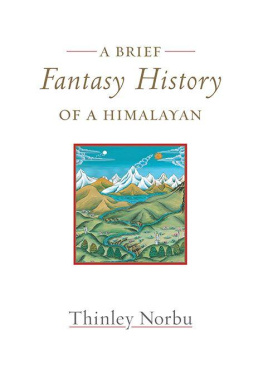
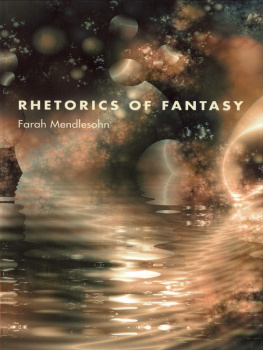
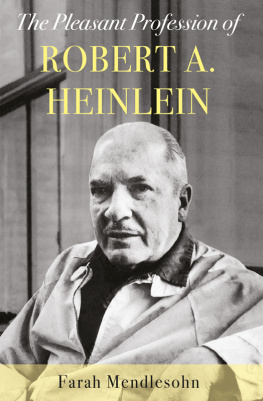
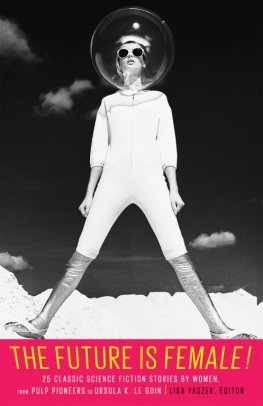
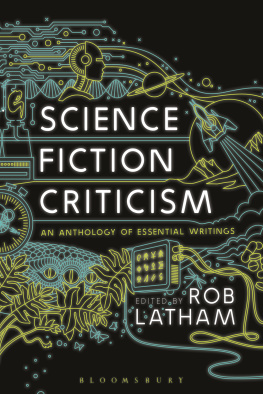



 Wesleyan University Press is a member of the Green Press Initiative. The paper used in this book meets their minimum requirement for recycled paper.
Wesleyan University Press is a member of the Green Press Initiative. The paper used in this book meets their minimum requirement for recycled paper.